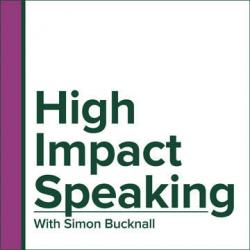
Richard Mullender is the former Lead Trainer at the National Crisis & Hostage Negotiation Unit at Scotland Yard. A true expert in communications and listening, he’s also a colleague and a great friend.
Having negotiated with the Taliban, talked gunmen out of houses and would-be suicides off roof-tops, Richard has experienced listening and communication skills at the sharp end. In this interview, he gives a glimpse of a fascinating world…
So, the other day, Richard and I sat down and had a little chat.
Q – The life of a hostage negotiator sounds exciting… even glamorous. Is it?
Exciting – yes. Tense – yes. Glamorous – no! That’s because when you’re on a negotiation, it’s usually 2 o’clock in the morning, it’s raining and somehow you’re always in the middle of a field. A friend of mine used to say: ‘as a negotiator, you fly over all the nice places to land in all the sh*t holes’. Pardon my French. Truth is, you just don’t do negotiations in Barbados. You do them in somewhere like… Afghanistan.
Who have you worked with?
Well, apart from the British police… the United Nations, the Indian Secret Service, the Maltese Secret Service, the Scorpions in South Africa and since leaving the force, a wide range of companies and organisations in the not-for-profit sector.
Who has impressed you on your travels?
U.N. Field Security Officers are a class apart. They operate in all the places we hear about and read about – but they’re there, on the ground, dealing with terrorist organisations on a near-daily basis. To be honest, they live and exist in a world which is beyond our imagination and accept as common-place things which we’d find extremely difficult to deal with.
In a negotiation, what’s the single biggest mistake most people make?
Not listening carefully – and so missing the key. People are often too concerned with their agenda and are not focused enough on understanding how the other side is thinking and feeling. Only if you understand them do you get the pathway to exerting influence – and without that pathway, you’re nowhere.
What’s your top tip for improving your negotiation skills?
Practice! Practice daily. Just get into conversation with people – and get them talking. Listen carefully to what they have to say. Be interested. Doesn’t matter who. You can do this with anyone at all – your parents, boyfriend, girlfriend, the waiter at the restaurant, someone at the bus-stop. Then reflect. Look back on what you’ve done and ask ‘How could I have done better?’
How did you get into professional speaking and training after leaving Scotland Yard?
Serendipity! My wife, who is a very senior police officer, was invited to give a talk for a national institute. She couldn’t do it… so I did! It was a freebie – and a lady in the audience came up to me and booked me to run some sessions in Dubai. That’s how it started. Also, whatever anyone asked me to do, I did. I just kept saying yes.
What’s your top tip for connecting with an audience?
Surprise them! I want to change people’s minds and to do that, I try to say something they don’t expect. When I introduce the most commonly held Myths of Communication in my sessions, I’m challenging people’s assumptions – but in a compassionate way. It’s like saying: ‘Here’s what I think you may be thinking; but you may not be right. How about this?’
What do you most enjoy about your work now as a speaker and trainer?
Seeing people grasp an idea and assimilate it into their world [click here for an example of distinguished audiences whom Richard has addressed]. They see the value of what you’re teaching and then immediately apply it. That’s great. You see, my belief is that these skills work across the board – with your kids, your boss, your colleagues and the rest.
Which communicators do you most admire?
I love the great speechmakers – Churchill, Obama, Martin Luther King and others. Their use of language – and rhetoric – is phenomenal. I love the way they play with language and are prepared to take risks.
If you could recommend one book, which would it be?
“Creative Mischief” by Dave Trott
[I've gone and ordered my copy right away! Ed.]
What’s your favourite quote?
“You should never be instinctive twice; the second time should be best practice.”
Who said that?
Me! | 




